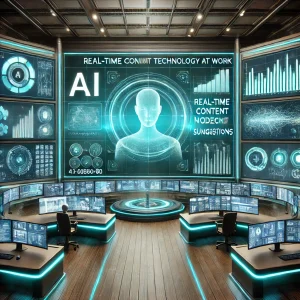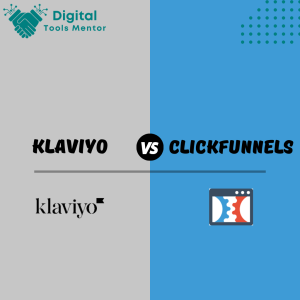AI and SEO A Beginner’s Guide
In today’s rapidly evolving digital landscape, Artificial Intelligence (AI) has emerged as a cornerstone, transforming how we interact with technology and data. AI, with its ability to learn, analyze, and predict, is no longer a futuristic concept but a present reality, deeply ingrained in our everyday digital experiences. From personalized recommendations on streaming services to intelligent virtual assistants, AI’s influence is widespread and growing.
Understanding AI becomes particularly crucial when we delve into the world of Search Engine Optimization (SEO). Modern SEO is not just about keywords and backlinks; it’s increasingly about understanding how AI algorithms interpret and rank content. AI shapes the way search engines analyze user behavior, preferences, and search queries, making it indispensable for anyone looking to optimize their online presence. Grasping the basics of AI and its application in SEO is key to developing effective strategies that resonate with both search engines and human audiences. This guide aims to demystify AI in the context of SEO, offering beginners a clear pathway to leveraging this powerful synergy for digital success.
What is AI?
Basic Understanding of Artificial Intelligence
Artificial Intelligence (AI) refers to the simulation of human intelligence in machines that are programmed to think and learn like humans. At its core, AI is about creating systems that can perform tasks requiring human intelligence, such as visual perception, speech recognition, decision-making, and language translation. AI operates on the principle of ingesting large amounts of data, analyzing it for patterns and insights, and making decisions based on this analysis. It’s a broad field, encompassing a range of technologies, including machine learning (where computers are taught to learn from and adapt to new data without human intervention) and natural language processing (which enables machines to understand and interpret human language).
Examples of AI in Everyday Life
AI is not just a concept reserved for tech experts or sci-fi movies; it’s part of our everyday lives, often in ways we might not immediately recognize.
- Personal Assistants: Siri, Alexa, and Google Assistant use AI to understand and respond to our questions and commands.
- Recommendation Systems: Streaming services like Netflix and Spotify use AI to analyze your viewing or listening history to recommend movies, shows, or music you might like.
- Navigation and Travel: AI powers the algorithms behind GPS services like Google Maps, optimizing routes in real-time and predicting traffic conditions.
- Social Media Feeds: Platforms like Facebook and Instagram use AI to curate your feed, showing content most relevant to your interests based on your past interactions.
- Email Filters: AI helps in filtering spam emails, categorizing incoming messages in email services like Gmail.
- Online Customer Support: Many websites use AI-powered chatbots to provide instant customer support and answer frequently asked questions.
Understanding AI in these familiar contexts makes it easier to grasp how it’s revolutionizing fields like SEO, where AI’s ability to process and analyze vast amounts of data can be harnessed to improve website visibility and user engagement.
The Intersection of AI and SEO
How AI is Changing the SEO Landscape
- Revolutionizing Search Engine Functionality:
- Improved Search Algorithms: AI has significantly enhanced the sophistication of search engine algorithms. It enables a deeper understanding of search queries, leading to more relevant and personalized search results.
- Content Relevance and Quality: AI tools analyze and rank website content based on quality and relevance rather than just keyword density. This shift emphasizes the importance of well-researched, genuinely informative content.
- User Experience Optimization: AI algorithms can evaluate the user experience offered by websites, factoring in elements like page load speed, mobile-friendliness, and user engagement metrics.
Key Differences AI Makes in SEO Practices
- Transforming SEO Strategies:
- Data-Driven Insights: AI provides unprecedented access to data analytics, offering detailed insights into user behavior, search patterns, and content performance. This allows for more informed and strategic SEO decision-making.
- Predictive Analysis and Trend Spotting: AI’s predictive capabilities enable SEO professionals to anticipate market trends and user needs, helping them create content that addresses future search queries.
- Automated SEO Tasks: From keyword research to content optimization, AI tools can automate various time-consuming SEO tasks, increasing efficiency and accuracy.
- Personalization at Scale: AI enables the personalization of content and marketing strategies to cater to individual user preferences, enhancing the overall effectiveness of SEO efforts.
The integration of AI into SEO has not only revolutionized search engine functionality but also transformed the way SEO is practiced. As AI continues to evolve, staying abreast of these changes and adapting strategies accordingly is essential for anyone looking to succeed in the dynamic field of SEO.
Search Algorithms
How Search Engines Work
- Basic Mechanics of Search Engines:
- Crawling and Indexing: Search engines use ‘crawlers’ or ‘spiders’ to navigate the web and collect information about websites. This process, known as crawling, involves scanning site content, images, videos, and other files.
- Building an Index: The data collected by crawlers is then indexed, meaning it’s organized and stored in massive databases. This indexing process makes the retrieval of relevant information possible when a user performs a search.
- Ranking Algorithms: When a user enters a query, the search engine uses complex algorithms to sift through its index and return the most relevant results. These algorithms consider various factors, including keywords, site usability, and link patterns.
The Role of AI in Search Engine Algorithms
- Enhancing Search Capabilities with AI:
- Understanding User Intent: AI helps search engines go beyond keyword matching to understand the intent behind a user’s search query. This involves interpreting the meaning and context of words used in a search.
- Personalized Results: AI algorithms analyze users’ search histories, location, device type, and other factors to provide personalized search results, making them more relevant to the individual user.
- Continuous Learning and Adaptation: AI enables search engines to learn from user interactions and continuously update their algorithms. This constant learning process helps improve the accuracy and efficiency of search results over time.
- Fighting Spam and Low-Quality Content: AI assists in identifying and penalizing spammy or low-quality content, ensuring users get high-quality, trustworthy search results.
The incorporation of AI into search engine algorithms has significantly enhanced how search engines operate. By understanding the mechanics of search engines and the role of AI, SEO practitioners can better optimize their content and strategies to align with how modern search engines function.
AI Tools for SEO: An Overview
Top AI SEO Tools
- Elevating SEO with AI Technology:
- The Rise of AI Tools in SEO: The integration of AI into SEO tools has transformed traditional SEO practices, making them more efficient and data-driven. These tools leverage AI algorithms to automate tasks, provide deeper insights, and enhance overall strategy effectiveness.
- Categories of AI SEO Tools: Common AI SEO tools fall into various categories, including content creation and optimization, keyword research, and video SEO, each addressing specific aspects of an SEO strategy.
- Content Creation and Optimization Tools:
- AI-Powered Writing Assistants: These tools help in generating and optimizing content, ensuring it’s SEO-friendly and resonates with the target audience. They can suggest improvements, optimize for readability, and ensure keyword inclusion.
- Content Analysis Tools: AI in these tools analyzes existing content for SEO effectiveness, suggesting enhancements such as structure, tone, and keyword density.
- Example: Outranking: Outranking is an AI-driven tool that assists in creating SEO-optimized content. It provides suggestions for keyword inclusion, headings, and content structure based on the analysis of top-ranking pages.
- Keyword Research and Analysis Tools:
- Automated Keyword Discovery: AI tools for keyword research automate the process of finding relevant keywords, including long-tail phrases, by analyzing search trends and competitor data.
- Search Intent Analysis: These tools use AI to categorize keywords based on search intent, helping to align content with what users are actually searching for.
- Example: Link Whisper employs AI to suggest intelligent internal linking opportunities, enhancing SEO by improving site structure and content relevancy.
- Video SEO Tools: AI tools are also revolutionizing video content optimization.
- Example: VidIQ uses AI to provide insights for optimizing video content on platforms like YouTube, offering recommendations on titles, descriptions, and tags based on search trends and engagement data.
AI tools are essential for modern SEO practices, offering a range of functionalities from content optimization to strategic keyword research. By leveraging these tools, SEO professionals can significantly enhance their efficiency and effectiveness, staying ahead in the ever-evolving landscape of search engine optimization.
The Benefits of Using AI Tools in SEO
- Enhancing SEO Efficiency and Effectiveness:
- Time-Saving Automation: AI tools automate repetitive and time-consuming tasks like keyword research, content analysis, and link building. This automation frees up valuable time for SEO professionals to focus on strategy and creativity.
- Data-Driven Decision Making: AI provides access to large sets of data and actionable insights, allowing for more informed decision-making. This data-driven approach leads to more targeted and effective SEO strategies.
- Improved Content Quality: AI-driven content tools help in crafting high-quality, relevant content that aligns with both search engine algorithms and user expectations. These tools can enhance readability, ensure keyword optimization, and suggest structural improvements.
- Enhanced User Experience: AI tools analyze user behavior and preferences, enabling websites to offer a more personalized experience. By understanding what users are looking for, websites can tailor content, navigation, and layout to meet user needs more effectively.
- Accuracy in Keyword Research: AI-driven keyword tools provide precise and comprehensive keyword suggestions, including long-tail phrases, which might be overlooked in manual research. They also help in understanding the search intent behind these keywords.
- Predictive Analytics and Trend Forecasting: AI tools can predict future trends and shifts in user behavior, allowing SEO strategies to be proactive rather than reactive. This foresight can be a significant advantage in a competitive digital landscape.
- Continuous Learning and Adaptation: AI algorithms continuously learn and adapt from new data, ensuring that SEO tools evolve with the changing search landscape. This ongoing adaptation keeps SEO strategies aligned with the latest search engine algorithms and best practices.
The integration of AI tools in SEO brings a multitude of benefits, from streamlining processes to providing deeper insights and creating more impactful content. These tools not only enhance the efficiency of SEO tasks but also contribute to the overall success of SEO campaigns in a dynamic digital environment.
AI and Content Creation
How AI is Reshaping Content Creation for SEO
- Innovations in Content Strategy:
- Automated Content Generation: AI can generate basic content drafts or suggest content ideas by analyzing trends, keywords, and competitor performance. This helps in creating relevant and timely content.
- Enhanced Content Optimization: AI tools provide recommendations for optimizing content for SEO, such as identifying the best keywords, suggesting meta tags, and improving readability.
- Personalization at Scale: AI enables the creation of personalized content for different audience segments. By analyzing user data, AI can suggest content adjustments to appeal to specific interests, demographics, or behaviors.
- Quality and Consistency: AI assists in maintaining a consistent tone and style across all content, ensuring that it aligns with the brand voice and SEO strategy.
Tips for Creating AI-Friendly Content
- Best Practices for AI-Enhanced SEO Content:
- Focus on User Intent: Use AI tools to understand the intent behind search queries and tailor your content to answer those needs directly and comprehensively.
- Utilize AI for Keyword Research: Leverage AI-powered keyword research tools to identify relevant and high-performing keywords and naturally integrate them into your content.
- Optimize for Featured Snippets: Use AI to analyze the structure of content that performs well in featured snippets and format your content accordingly (e.g., bullet points, concise answers to questions).
- Keep Content Fresh and Updated: Regularly update your content based on the latest data and trends identified by AI, keeping it current and relevant.
- Monitor Performance with AI Analytics: Utilize AI tools to track how your content is performing and make data-driven decisions to optimize it for better engagement and ranking.
- Avoid Over-Optimization: While AI can enhance your content for SEO, it’s crucial to maintain a balance and ensure that your content remains engaging and valuable to the human reader.
The role of AI in content creation for SEO is transformative, providing tools and insights to craft content that is not only search engine friendly but also deeply resonant and valuable to the target audience. By embracing AI in your content strategy, you can ensure that your SEO efforts are both effective and future-proof.
Read Personalizing Content with AI Writers
The Impact of AI on Keywords and User Intent
Semantic Search and Natural Language Processing
- Evolving Search Query Interpretation:
- Semantic Search: AI has shifted the focus of search engines from keyword density to semantic search, which is the ability to understand the intent and contextual meaning behind search queries. Semantic search considers factors like user location, search history, and the relationship between words in a query.
- Natural Language Processing (NLP): NLP, a subset of AI, helps search engines comprehend and interpret human language in a more natural and intuitive way. This means search engines can process and respond to queries as a human would, considering nuances and subtleties in language.
Adapting Keyword Strategy for AI-Driven Search Engines
- Modernizing Keyword Practices:
- Focus on Topic Clusters: Instead of targeting individual keywords, focus on broader topic clusters that cover a subject comprehensively. This approach aligns with AI’s ability to interpret content themes.
- Understanding User Search Intent: Use AI tools to analyze and understand the different types of user intent – informational, navigational, transactional – and tailor your content to match these intents.
- Long-Tail Keywords: AI-driven search engines excel at understanding long-tail keywords, which are more specific and often closer to natural speech patterns. Incorporating them can help in targeting specific queries and niches.
- Quality Over Quantity: Prioritize creating high-quality, relevant content that naturally incorporates keywords, rather than forcing a certain keyword density.
- Continuous Keyword Research: Employ AI tools for ongoing keyword research to keep up with changing trends, language usage, and emerging search patterns.
The advent of AI in search engines has fundamentally altered the approach to keywords and user intent in SEO. By understanding and adapting to these changes, content creators and SEO professionals can ensure their content remains relevant and effective in the AI-driven landscape of search.
AI and SEO Analytics
Using AI to Analyze and Interpret SEO Data
- Enhanced Data Analysis Capabilities:
- Comprehensive Data Analysis: AI algorithms can process vast quantities of SEO data, including traffic patterns, user behavior, and engagement metrics. This enables a more comprehensive analysis than traditional methods.
- Pattern Recognition and Prediction: AI excels in identifying patterns and trends in data. It can predict how changes in SEO strategies might impact future performance, allowing for proactive adjustments.
- Real-Time Insights: AI tools provide real-time analytics, giving immediate feedback on the effectiveness of SEO strategies and content. This allows for quick tweaks and optimization.
Making Data-Driven Decisions with AI Insights
- Informed Strategy Development:
- Strategic Decision-Making: AI-driven insights help in making more informed decisions about content creation, keyword targeting, and user experience optimization.
- Customized SEO Strategies: Based on AI analysis, SEO strategies can be tailored to specific audience segments, improving engagement and conversion rates.
- Efficient Resource Allocation: AI insights help identify which SEO efforts are yielding the best results, allowing for better allocation of resources and effort.
- Predictive Analysis for Future Trends: AI’s predictive capabilities enable SEO professionals to anticipate future trends and prepare strategies accordingly, keeping them ahead of the competition.
- Automation of Routine Analysis: Routine tasks like tracking keyword rankings and monitoring backlinks can be automated with AI, freeing up time for more strategic activities.
The use of AI in SEO analytics transforms how data is interpreted and used, making SEO strategies more dynamic, responsive, and effective. By harnessing the power of AI for data analysis, SEO professionals can ensure their strategies are data-driven and aligned with the constantly evolving digital landscape.
Navigating SEO in an AI-Driven World
Key Strategies for SEO Success with AI
- Adapting to an AI-Enhanced SEO Landscape:
- Embrace AI Tools and Technologies: Incorporate AI-driven SEO tools for keyword research, content optimization, and data analysis to stay competitive and efficient.
- Focus on User Experience: With AI placing greater emphasis on user experience, ensure your website is fast, mobile-friendly, and easy to navigate.
- Create Quality, AI-Friendly Content: Produce content that not only appeals to your audience but is also structured and optimized for AI algorithms. This includes using natural language, addressing user intent, and providing comprehensive coverage of topics.
- Leverage Predictive Analytics: Use AI’s predictive analytics to anticipate market trends, user behavior, and content preferences. Adapt your strategy to these predictions to stay ahead.
- Personalize Your Marketing Efforts: Utilize AI’s data processing capabilities to create personalized experiences for your audience, from customized content to targeted marketing campaigns.
Staying Updated with AI and SEO Trends
- Keeping Pace with Rapid Evolutions:
- Continuous Learning: SEO in the AI era requires constant learning and adaptation. Stay informed about the latest AI advancements and their implications for SEO.
- Experimentation and Flexibility: Be open to experimenting with new AI tools and techniques. Flexibility and adaptability are key in a landscape that is constantly evolving.
- Networking and Community Engagement: Engage with the SEO and AI communities, attend webinars and conferences, and participate in forums to exchange knowledge and stay up-to-date.
- Monitoring Algorithm Updates: Keep an eye on search engine algorithm updates and understand how AI influences these changes. Adjust your SEO strategies in response to these updates.
- Ethical Considerations and Best Practices: As AI continues to grow in influence, adhere to ethical guidelines and best practices in data usage, ensuring that your SEO strategies are not only effective but also responsible and respectful of user privacy.
In an AI-driven world, navigating SEO requires a blend of embracing new technologies, constantly updating knowledge and strategies, and maintaining a focus on providing high-quality, user-centric content. By staying informed and adaptable, SEO professionals can navigate this landscape successfully and leverage AI for optimal results.
Conclusion
As we have explored, the role of Artificial Intelligence in Search Engine Optimization is both transformative and expansive. AI has redefined the traditional parameters of SEO, from automating and refining keyword research to personalizing user experiences and enhancing content relevance. Its ability to analyze vast sets of data, predict trends, and understand user intent has made AI an indispensable tool in the arsenal of modern SEO practitioners. The integration of AI into SEO practices not only simplifies complex tasks but also opens up new avenues for innovation and effectiveness.
The landscape of SEO is continuously evolving, driven by the rapid advancements in AI technology. Embracing AI in SEO practices is no longer just an option but a necessity for those looking to stay ahead in the digital marketing realm. By leveraging AI’s capabilities, SEO professionals can gain deeper insights, craft more targeted strategies, and achieve better outcomes in their digital marketing efforts.
Step into the Future of SEO
The journey into AI-powered SEO is just beginning, and the possibilities are limitless. I encourage you to dive deeper into this exciting field and explore the full potential of AI in SEO. For more advanced resources, in-depth analyses, and the latest trends in AI and SEO, visit our advanced resources section. Stay ahead of the curve, continuously update your knowledge, and embrace the innovative solutions that AI brings to SEO. The future of SEO is AI-driven, and it’s time to be part of this thrilling evolution.




